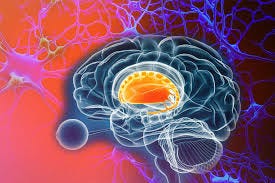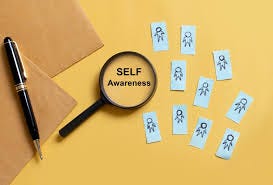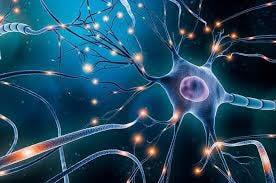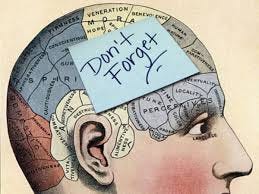You Can't HATE Yourself into a Relationship You LOVE 🧠
Why your nervous system keeps choosing the wrong people (8min Read)
TL;DR
Beating yourself up doesn’t make you lovable; it just keeps you stuck in reruns.
Your nervous system doesn’t seek what you want; it seeks what feels familiar.
Exiled parts pull you back into “do-over” relationships, replaying the same script, hoping for redemption.
Healing = unburdening those parts + retraining your nervous system to recognize safety as home.
You don’t need to fix yourself to earn love; you need to remember you’ve been enough all along.
Hating Yourself Doesn’t Work… Surprise, Surprise
Let me say this very slowly... You cannot bully your inner critic into making you lovable.
Beating yourself up doesn’t magnetize a secure partner; it keeps you stuck in the same loop of partners who confirm that voice in your head.
You know why?
Because your nervous system doesn’t attract what you want, it attracts what feels familiar.
If familiar is shame, judgment, and self-abandonment, guess what kind of partners you’ll keep pulling in?
The ones who mirror exactly that.
Which is why you cannot hate yourself into a relationship you love.
If beating yourself up actually made you lovable, you would be in the healthiest relationships on earth.
You’d be the SECUREST. PARTNER. ALIVE.
We both know that’s not what’s happening though.
So, what is going on then? Let me guess.
You meet someone kind, consistent, emotionally available…and a part of you gets itchy.
There’s no “spark.”
Meanwhile, you can feel the chemistry with someone chaotic from three zip codes away.
No, I’m not reading your diary… But I am trained in a trauma therapy called Internal Family Systems, and I see this with my ambitious clients all the time.
They think if they just fix enough, heal enough, hustle enough, then they’ll finally be worthy of love.
False. This doesn’t work.
So, what does? I’m glad you asked, that's exactly what we’re talking about today!
Let’s dive in.
Why “Chemistry” Is Usually a Rerun
Your brain is a prediction machine.
Its job is not to give you what you want, it’s to keep you near what it can predict.
Familiarity = “safe” to your survival circuitry, even when familiar has historically hurt.
So when a good, steady person sits across from you, your prediction system shrugs.
No fireworks.
Not because they’re boring, but because your body hasn’t learned to release dopamine in response to safety yet.
When chaos walks in, your system lights up.
“Ah, this I know how to do.”
Chemistry is a smoke alarm.
It’s loud around what your body recognizes, not necessarily what will nourish you.
Exiles and the “Do-Over” Trap
Here’s where it gets deeper.
In IFS, the parts of you that carry raw wounds of abandonment, shame, or “not enoughness” are called Exiles.
Exiles are like little kids frozen in time, holding unmet needs:
See me.
Hear me.
Don’t leave me again.
And Exiles are clever.
They tug you toward familiar dynamics and familiar partners, ones that look suspiciously like old wounds, because they’re desperate for a do-over.
“Maybe this time, if I can finally get love from someone like the one who hurt me, I’ll feel whole.”
The problem?
It’s like rewatching the same Netflix series over and over, hoping the ending will magically change.
You think, Maybe season 4 will finally go differently, but it never does.
The script was written years ago, and unless you heal the wounds underneath, your body keeps pressing “play” on reruns.
So no, you haven’t been in eight different relationships with eight different unavailable partners.
You’ve essentially been in the same relationship eight times, because the same Exile has been driving, hoping for redemption.
This is why self-awareness alone doesn’t break the cycle.
The baggage isn’t just cognitive, it’s embodied.
Those Exiles need to be met, witnessed, and unburdened.
Only then can your nervous system truly learn to find safety in something new.
Healing the Exiles clears the lens.
Nervous system retraining updates the prediction system.
Together, they make secure love visible and desirable.
Sounds nice, Cody, but how do I do this?
Glad you asked, it starts with that inner critic of yours!
Your Inner Critic Isn’t a Villain; It’s a Badly Trained Bodyguard
If your inner voice sounds like “Don’t be so needy,” “Make yourself smaller,” “He’ll leave if you set that boundary,” that’s not you being mean for sport.
That’s a protective part of you trying to keep you from re-experiencing pain.
It learned: If I pre-judge myself, other people can’t hurt me first.
Here’s the kicker: trying to bully the bully doesn’t work.
It just escalates the internal war and keeps your threat circuitry on high alert.
Which makes secure connection feel even weirder… Shocker.
What works better? Befriending, then retraining.
Try chatting with this part of you tonight, two minutes tops:
“Hey critic, if you didn’t push me so hard, what are you afraid would happen?”
(Listen. Write down the answer.)
“If you trusted I could handle things now, how would you rather help?” (Listen. Write down the answer.)
“I get it, and I can see why you do what you do now. Thanks for trying to protect me. I’ve got us, now, you’re not on your own anymore!”
You just moved your brain from pure threat (amygdala) toward regulation and perspective (prefrontal + social-safety networks).
Translation: you created a window where new learning is actually possible.
“But I Want to Want the Healthy One, Cody.”
You will.
But wanting follows wiring, my friend.
Think of it like learning to enjoy black coffee after years of syrupy lattes.
At first your tongue says, “Nope.”
With repetition, your palate updates.
Same nervous system principle: neurons that fire together wire together.
We have to give your body repeated experiences of closeness + respect so it can remap safety = interesting.
A few ways to do that in real life (not as hacks—as practice):
Ask a trusted friend or family member for a tiny need: “Big meeting tomorrow, can you text me a quick good-luck in the morning?” When they do, pause and mark it: This is responsiveness. This is safety.
On a date, if your system speeds up: “I’m enjoying this. Can we slow down for a sec so I can catch up with myself?” Notice how direct + warm can coexist. Feel how your body settles when you stay on your own side.
When a moment of calm lands with someone safe, name it quietly: “It’s nice to feel relaxed with you.” You’re letting your nervous system encode the moment instead of sprinting past it.
These aren’t cute behaviors; they’re reps.
You’re training your prediction system to expect respect.
You’ve Been Enough All Along
Alright, peeps, last but not least, here’s the part I really want you to hear.
You don’t need to heal more, fix more, hustle more, or become someone else to be worthy of healthy love.
You’ve been enough the whole damn time, ya just forgot.
What happened is, along the way, through trauma, attachment wounds, and just freaking life, you lost touch with the confidence, courage, clarity, compassion, creativity, playfulness, presence, and calm that live at your core (IFS calls these the 8 C’s and 5 P’s).
Those qualities aren’t missing.
They’re not something you earn through ten more therapy intensives or three more years of self-help homework.
They’re in you right now.
The only reason you can’t always feel them is that Exiled parts and protective parts pile baggage over the top of these qualities, trying to keep you safe.
Which means, the work isn’t about becoming enough.
It’s about remembering, you already are.
And yes, some of that remembering you can start today, like the inner critic exercise we just walked through.
Working with protective parts can be done alone, with curiosity and care.
But when it comes to sitting with Exiles, the young, raw places carrying the deepest wounds, it’s best to have a trained professional or trusted guide holding space with you.
Those parts deserve to be met gently, with safety and compassion.
That being said, I’ll drop the IFS Directory below so you can find someone who can help you out near you!
So, Where Does This Leave You?
You can’t bully yourself into being lovable.
You never had to.
You’ve always been worthy of love that feels safe, steady, and secure.
That hasn’t changed.
What’s changing now is your access to it, because you’re clearing the baggage that blurred the view and retraining your body to recognize safety as home.
You’re not broken, you’re remembering.
Secure love isn’t out of reach. It’s not too late.
You don’t have to shrink your ambition or abandon yourself to find it.
You already have what you need inside of you.
The work is simply clearing the path back to it.
You’ve got this.
Until next time… Live Heroically 🧠
Want to Work With Me? Here Are a Few Ways I Can Help You
Check out my FREE webinar on The ONE Skill That Attracts Secure Love Fast. If you’re smart, attractive, successful, and self-aware, but love still feels like a minefield, this is for you!
Grab my new ebook: Exactly How to Become Emotionally Available: It’s a step-by-step guide for attracting and keeping the love you seek, built for the success but single among us!
Join the Action Academy: It’s where I hang out when I’m not writing. You can hop on weekly calls I host, see the projects I’m working on, and of course, take action on healing the invisible baggage that secretly holds you back from the relationships, health, and success you want!
Become a paid subscriber to the Mind, Brain, Body Lab Digest: You’ll get subscriber-only video posts, email replies, access to my entire blog archive, early access to new products, workshops & tools I create!
Supporting Research
Coan, J. A., Schaefer, H. S., & Davidson, R. J. (2006). Lending a hand: Social regulation of the neural response to threat. Psychological Science, 17(12), 1032–1039.
Friston, K. (2010). The free-energy principle: A unified brain theory? Nature Reviews Neuroscience, 11(2), 127–138.
Gilbert, P. (2005). Compassion and cruelty: A biopsychosocial approach. In P. Gilbert (Ed.), Compassion: Conceptualisations, Research and Use in Psychotherapy (pp. 9–74). Routledge.
Hebb, D. O. (1949). The Organization of Behavior: A Neuropsychological Theory. Wiley.
Longe, O., Maratos, F. A., Gilbert, P., Evans, G., Volker, F., Rockliff, H., & Rippon, G. (2010). Having a word with yourself: Neural correlates of self-criticism and self-reassurance. NeuroImage, 49(2), 1849–1856.
Mikulincer, M., & Shaver, P. R. (2007). Attachment in Adulthood: Structure, Dynamics, and Change. Guilford Press.
Neff, K. D. (2003). Self-compassion: An alternative conceptualization of a healthy attitude toward oneself. Self and Identity, 2(2), 85–101.
Porges, S. W. (2011). The Polyvagal Theory: Neurophysiological Foundations of Emotions, Attachment, Communication, and Self-Regulation. W. W. Norton.
Schwartz, R. C. (1995). Internal Family Systems Therapy. Guilford Press.












